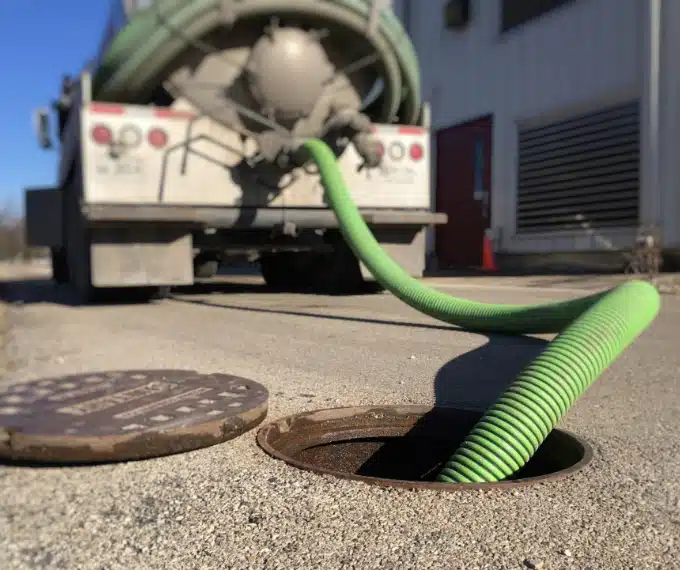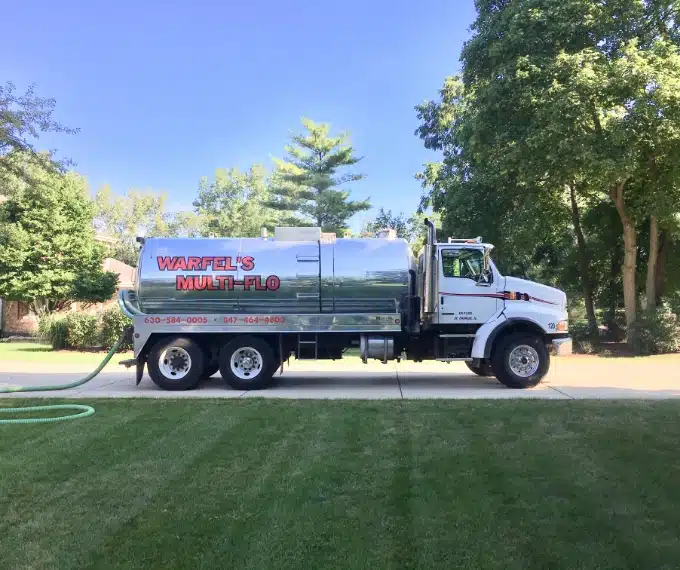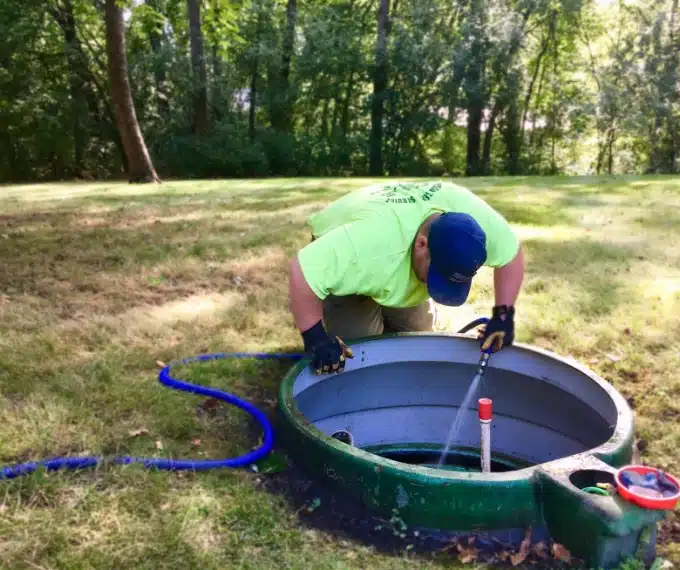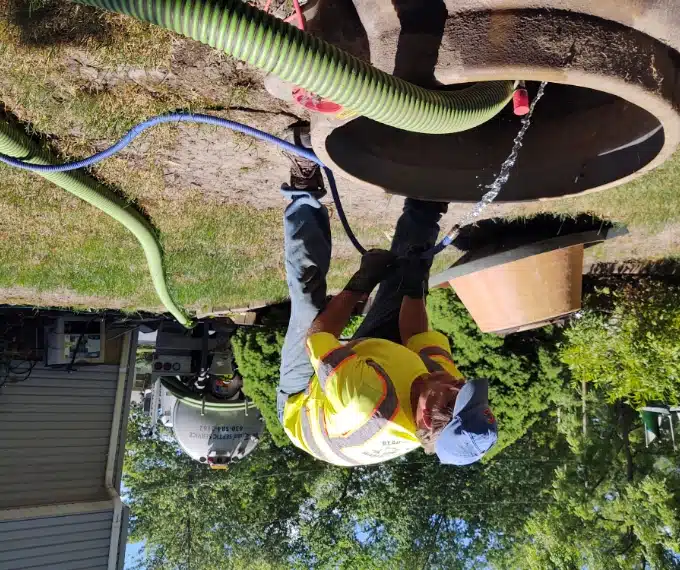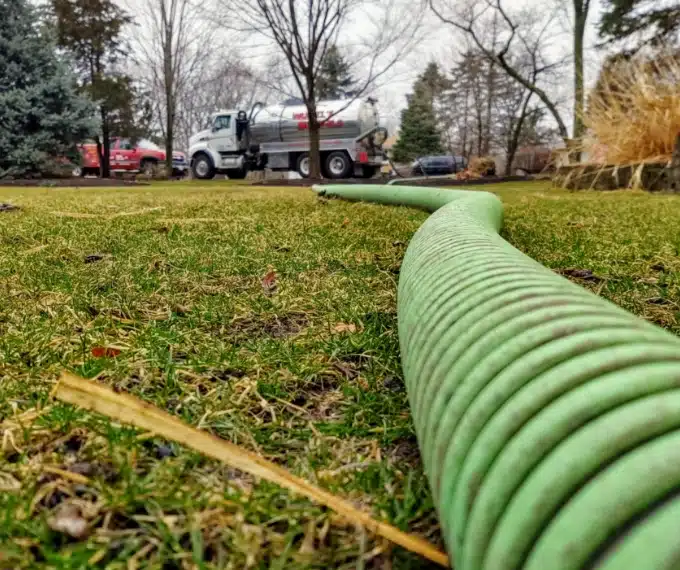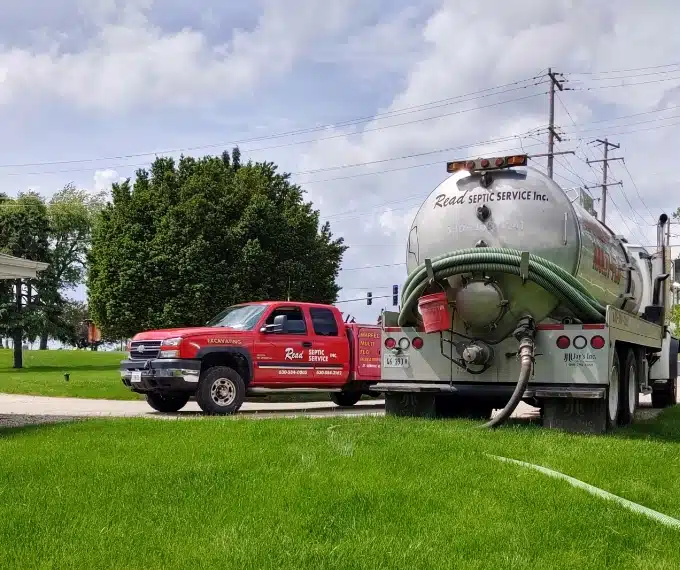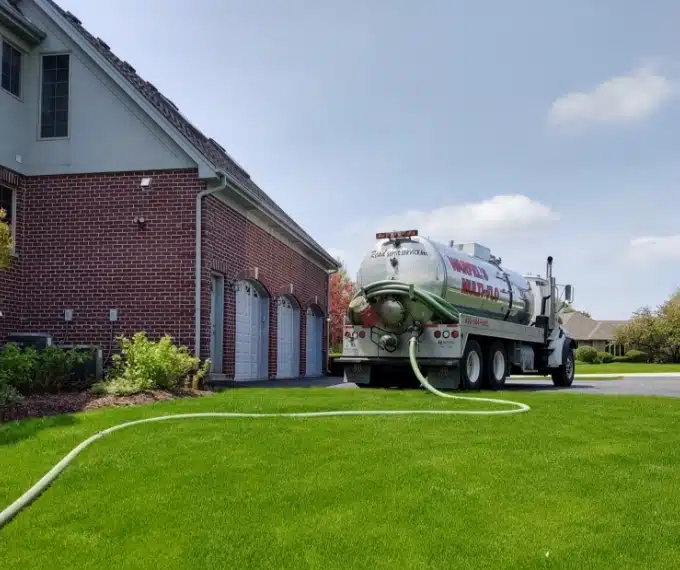OUR SERVICES
Fast Service, Advanced Equipment, & over 60 Years of experience. Reliable & Affordable.Installation & Repair
Septic Tank Pumping
We pump septic tanks for any residential and most commercial applications in the counties of Kane, DuPage, McHenry, and DeKalb. Need a riser? We can install concrete or plastic risers to bring your access lids up to State Codes. (12″ below grade.) We never drive on your yard to pump your tank. Our truck stays on your driveway or the road. Don’t want the big truck on your driveway? No Problem! Request the smaller truck when you make your appointment.
Septic tank maintenance is important in preventing groundwater pollution which could jeopardize the quality of drinking water. The last thing homeowners and businesses want to think about is large sludge and scum build-ups, and they rely on Read Septic to perform septic tank pumping on a regular basis. With the very deep, poorly draining Drummer soil common in our area, every three years is the maximum time between pumping septic tanks. Waiting longer can cause a septic tank to malfunction which can result in legal issues and a reduction in your property values.
Call us at (630) 584-2162 to schedule your next pumping.
FAQ's
Here are some commonly asked questions about septic pumping!
The State of Illinois has set codes for the size of the tank. The size is determined based on the number of bedrooms (not bathrooms) you have in your house. It is sized by bedrooms because that will determine how many people can live in the house. The smallest size tank is supposed to be 750 gallons. However, some tanks can be smaller on older homes that were built before the codes were set in place. Here are the most common sizes for most homes in the State of Illinois:
2 Bedrooms – 750 Gallons
3 Bedrooms – 1000 Gallons
4 Bedrooms – 1250 Gallons
5 Bedrooms – 1500 Gallons
2 Bedrooms – 750 Gallons
3 Bedrooms – 1000 Gallons
4 Bedrooms – 1250 Gallons
5 Bedrooms – 1500 Gallons
The simple answer is to remove the build-up of solids in the tank. Your septic tank is a solids (sludge) filter for your septic system. Your septic field is designed to drain the water you use in your house back into the soil. The more solids that there are in the water, the faster that the septic field will plug up and fail. The Septic Tank is designed to filter out as much of the solids as possible to keep them from entering into the septic field. The solids will float and settle inside the tank. Through a system of baffles, the solids stay in the tank and the water exits. However, as the solids accumulate in the tank, more and more of the solids leave the tank, especially during high volumes of water use (i.e laundry and showers/baths). Pumping your tank is a simple and relatively cheap solution to minimizing the solids that can leave the tank and plug up the septic field.
That varies depending on the number of people living in the house, and how big the tank is. Generally speaking, your tank should be pumped every 3 years. More specifically, here is the recommended frequency:
2 people – 4 years
3-5 people – 3 years
5 or more people – 2 years
Keep in mind that these are averages and recommended numbers. Your situation may be different and you should talk to our technicians to customize your pump out schedule.
2 people – 4 years
3-5 people – 3 years
5 or more people – 2 years
Keep in mind that these are averages and recommended numbers. Your situation may be different and you should talk to our technicians to customize your pump out schedule.
Almost every tank has 3 openings. One over the inlet, one over the outlet, and one in the middle. All tanks that have 3 openings must be pumped from the middle opening to ensure a proper job. Some tanks have concrete walls in the middle to help separate the solids. If you pump from the inlet or outlet, you are not pumping the solids on the opposite side of that wall and therefore only pumping half of the tank. Pumping from the center opening allows you to pump on both sides of the wall. The inlet and outlet are for rodding and inspection only! Some older tanks only have an inlet and an outlet opening, but the openings are usually bigger than the ones on the tanks that have 3 openings. This allows for proper pumping.
Yes!! The monthly practice of adding bacteria and enzymes to your tank is a good practice, but it does not get rid of the solids that are building up. Enzymes help break down the solids in your tank to help the tank filter the water properly. The solids still exist. They have just been broken down into smaller particles and allow them to settle and float the way they are supposed to.
It really doesn’t matter. Obviously, winter is a poor choice due to the frozen ground. Spring is probably the best choice. Due to the Winter snow and the Spring Rains, a failing septic field can start backing up in to the septic tank causing the water level to be higher than normal. This can be caught early thus allowing us to diagnose and possibly repair the septic field before it needs to be completely replaced. Otherwise, any time of the year is perfectly ok to get it pumped as part of your regular maintenance.



